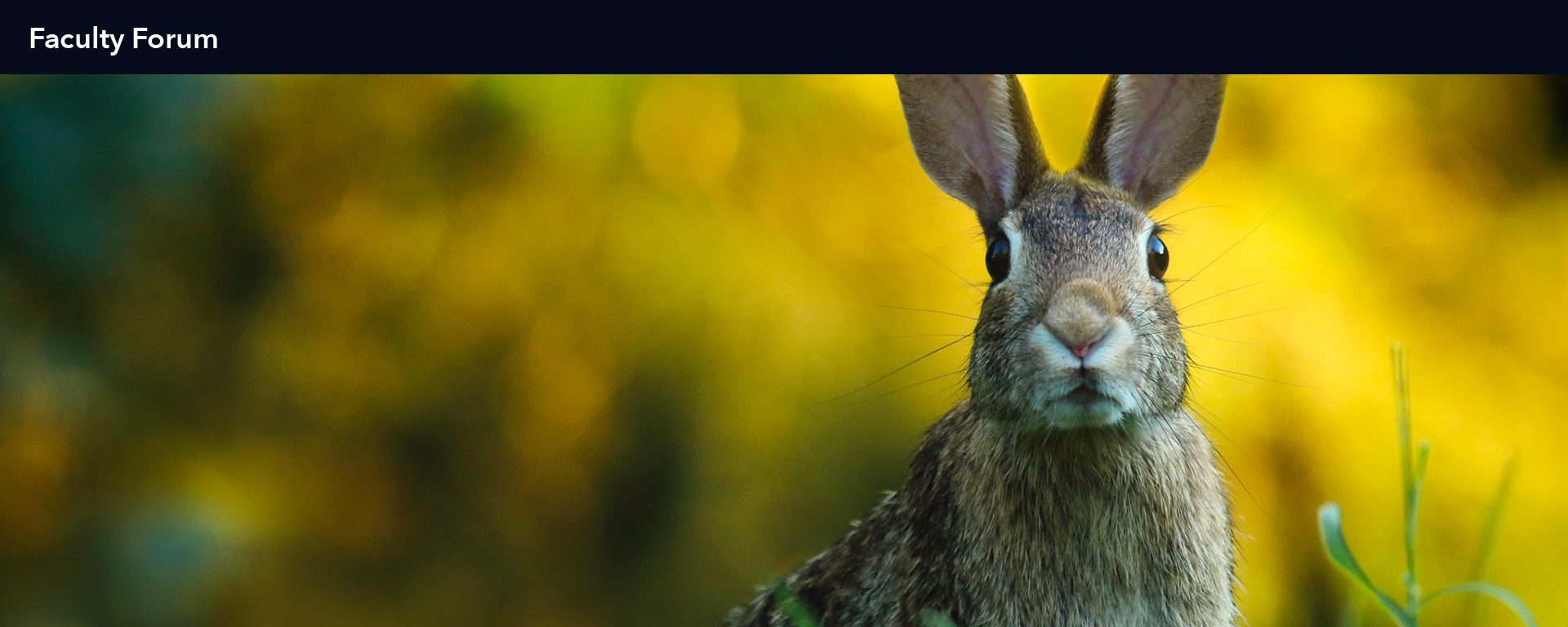by Kelli Goodkowsky, M.Ed., HT (ASCP)
Program Director, Histologic Science
How many instructors at one time or another have found themselves going down a rabbit hole? Whether taking on a complex project or discovering that a simple project has developed layers and layers that need peeling, the overwhelming feeling to run is universal. How do instructors focus their thoughts on the task, minimizing the anxiety that so often accompanies starting or finishing a project? How can instructors assist students to stay above ground and embrace the task instead of fearing it? We can start by recognizing the rabbit hole for what it is: a metaphor for the unknown. Whether this metaphor presents at the start of a project or during is irrelevant. The key is to approach the task with clarity and fearlessness.
In the histologic sciences, the rabbit hole typically looks like the dreaded formal writing assignment or the end of semester cumulative exam. Students often ask, “Why do we have to write…what purpose will this serve me…how do I begin?” Putting aside my philosophical answer to questions of the why or how of purpose, as an instructor I have to consider the anxiety students may feel toward this unknown and what I can do to assist them to move from fear to fearlessness.
The first step to staying above the rabbit hole is to remove the “what if’s” from the equation or, at a minimum, to transform the “what if” that comes from a fear-based perspective to one that is grounded in fearlessness. For example, “Where do I begin?” can transform to “Can we begin together?” Modeling the beginnings of an assignment or allowing class time to “pow-wow,” as my students like to call it, have enormous potential to minimize fear and promote fearlessness.
This semester, my students engaged in reflective practice at the conclusion of each weekly unit, a task that prior to Universal Design for Learning training might have seemed cumbersome, given the amount of material students must learn. Although not a formal writing assignment, this reflective practice helped students identify what they were doing well, where they could improve, and how they could integrate a balance of work and play as they move through the program. While reflecting on her current practice of retaining information (which she confessed was not working), one of my students was astounded at the transformation that occurred when she identified alternatives to her study practice. Another student commented (to her surprise) that she actually enjoyed performing group work as she picked up tips for studying and retaining information from her classmates.
The anxiety of taking a cumulative exam can be greatly reduced by structuring repetitiveness into each class. In the histology program, this may take the form of ungraded quizzes for each unit and then revisiting these same quizzes toward the end of the semester. Using technology such as the online site Quizizz as a platform for delivery not only engaged students, but also challenged their knowledge and thought process, while creating a healthy competitiveness between the students.
In the histology program, we stress making connections between the lecture and the lab as a foundation for retaining information. We emphasize the value in repetition and pulling information from multiple resources; however, does pulling from multiple resources lead to information overload and ultimately, further descent down the rabbit hole? Henry Ford said, “Nothing is particularly hard if you divide it into small jobs.” Ah, Mr. Ford was on to something.
Understanding what leads one down the rabbit hole is the first step to conquering a fear of the unknown. If one can look at the rabbit hole as a means for staying on track, one can change the conversation from fear to fearlessness. Through in class reflective practice and fostering repetitiveness and connections, instructors can help students to avoid falling down the rabbit hole, maintain clarity, and ultimately, find the value in cumulative exams and the dreaded writing assignment.
For more information on Goodwin College’s histology program, click here.
Goodwin University is a nonprofit institution of higher education and is accredited by the New England Commission of Higher Education (NECHE), formerly known as the New England Association of Schools and Colleges (NEASC). Goodwin University was founded in 1999, with the goal of serving a diverse student population with career-focused degree programs that lead to strong employment outcomes.

